Not the Marge of Lake Lebarge

Yeah, sure, click it to make it big...
05/10/2024. Back in March 1989, there came a brilliant aurora while Harry Powell and I took variable star data at ETSU's modest observatory. The sky was clear, but our measurements were all over the place, and when Dr. Powell looked up, he saw that the sky was lit red. He announced his discovery with a spirited recitation of the opening stanzas of Robert Service's "The Cremation of Sam McGee."
Amy and I watched an auroral display in 2003 from our cul de sac, but it was pretty pale compared to the one we saw this week.
On this night, I knew there was some chance of an aurora given the recent hyper-activity of the Sun, but what brought us out under the stars early was a pass by a fresh train of Starlink satellites (see photo above, in the lower right). I took that full-frame fisheye photo just as the Starlinks appeared low in the west in deep twilight. When I chimped the viewfinder to check the exposure, I saw the sky lit red and heard, in Harry Powell's voice,
There are strange things done in the midnight sun
By the men who moil for gold;
The Arctic trails have their secret tales
That would make your blood run cold;
The Northern Lights have seen queer sights,
But the queerest they ever did see
Was that night on the marge of Lake Lebarge
I cremated Sam McGee
The aurora brightened and spread across the sky. Over the next couple of hours, rays and curtains formed and as quickly melted away. I took the Canon R6 with the 12mm f2.8 full-frame fisheye down to the marge of Lake Rhodhiss, out on the neighborhood's floating dock, and tried frame after frame ranging from 5s at ISO 800 to 15 seconds at ISO 3200. Most were at the shallow end of that scale. Here are thumbnails of the best (also viewable as an album here) to save some bandwidth. I want to emphasize that the sky did not look this spectacular to the human eye. It's all real, but -- as with most astrophotography -- the camera sees dim detail better than humans can.
Click any photo for a larger, clearer, better look!
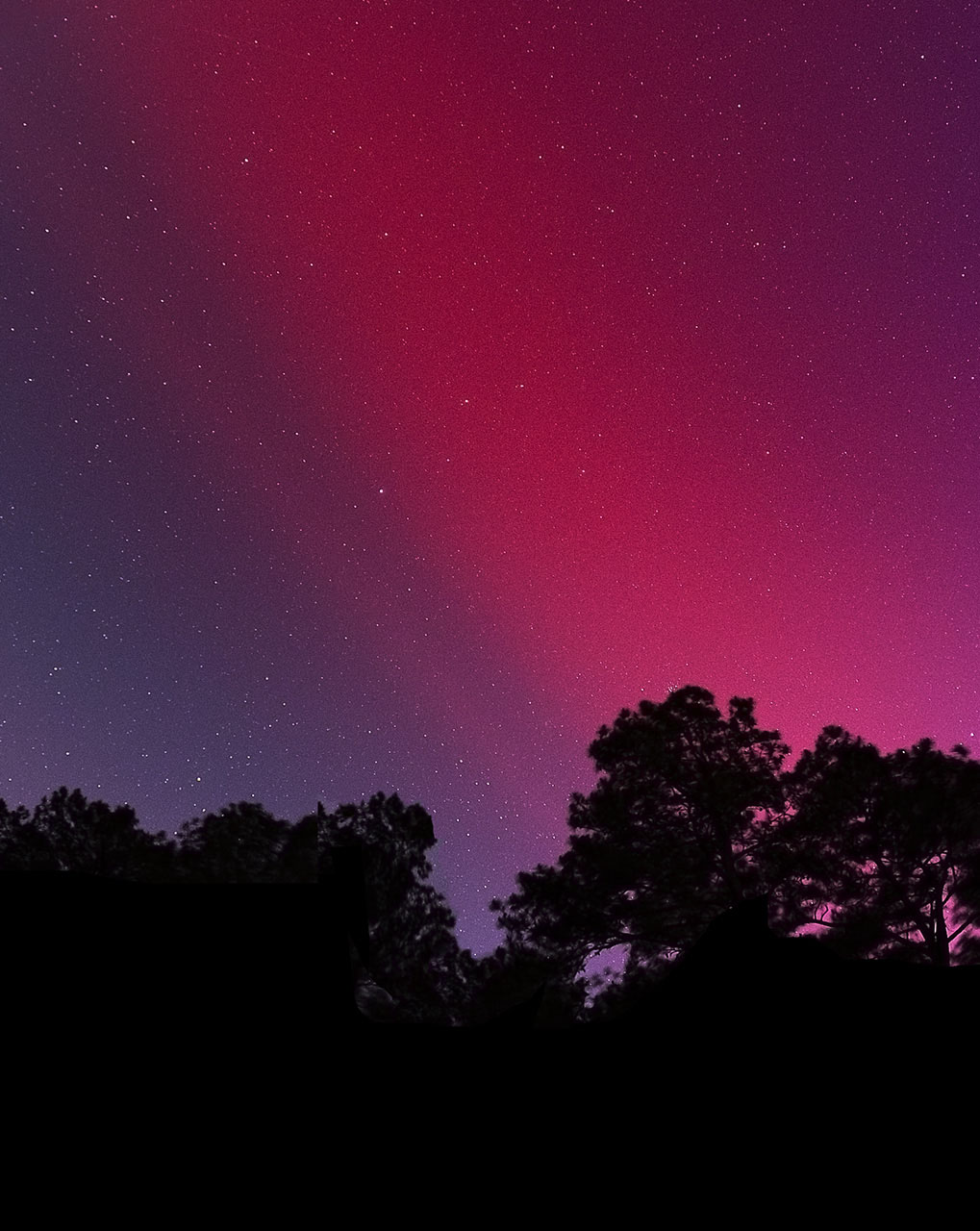
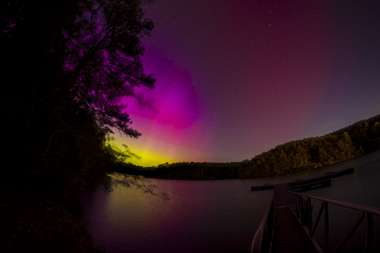
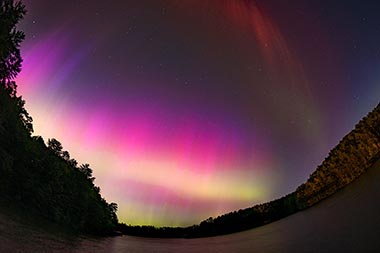
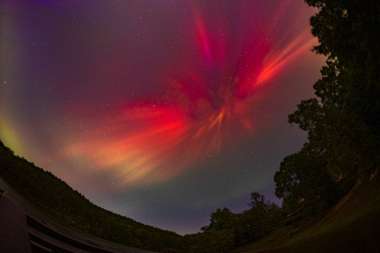
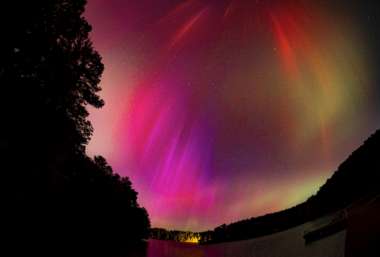

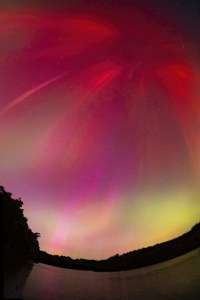
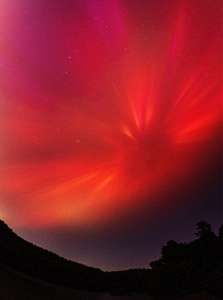
OK, so I got clouded out of a total eclipse last month in Texas. It's not like the cosmos owed me anything, but a crystal clear sky for a once-in-a-generation auroral display is much appreciated.
:: top ::
|